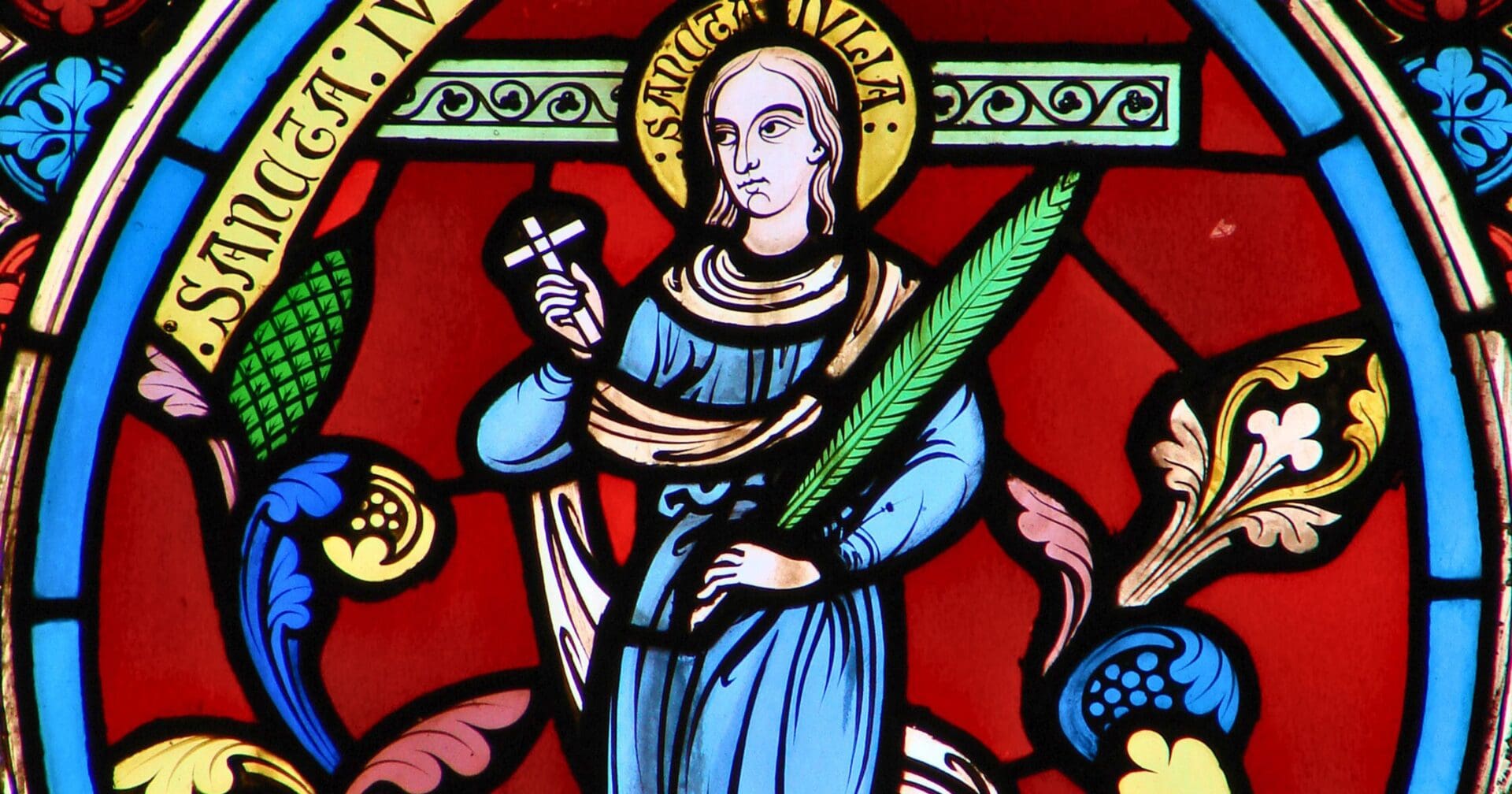
Saint Julia was born of noble parents in North Africa. When she was still quite young, her city was conquered by barbarians. Julia was captured and sold as a slave to a pagan merchant, but she did not complain or feel sorry for herself. She accepted everything, and performed the most humble tasks with wonderful cheerfulness. For Julia loved God with all her heart. In her spare time, she read holy books and prayed fervently.
One day her master decided to take her with him to France. On the way, he stopped at an island to go to a pagan festival. Julia refused to even go near the place where they were celebrating. She did not want to have anything to do with those superstitious ceremonies.
The governor of that region was very angry with her for not joining in the pagan feast. “Who is that woman who dares to insult our gods?” he cried. Julia’s owner answered that she was a Christian. He said, too, that although he had not been able to make her give up her religion, still she was such a good, faithful servant that he would not know what to do without her.
“I will give you four of my best women slaves for her,” offered the governor, but her master refused. “No,” he said, “All you own will not buy her. I would willingly lose the most valuable thing in the world rather than lose her.”
When the merchant was asleep, however, the wicked governor tried to make Julia sacrifice to the gods. He promised to have her set free if she would, but she absolutely refused. She said she was as free as she wanted to be as long as she could serve Jesus. Then the pagan ruler, in great anger, had her struck on the face and her hair torn from her head. She was next put on a cross to hang there until she died. Her feast day is May 23rd.
Photo credit: Public Domain via Wikimedia Commons
The post Saint Julia appeared first on uCatholic.
Daily Reading
Feast of Saint Stephen, first martyr
Reading 1 Acts 6:8-10; 7:54-59 Stephen, filled with grace and power,was working great wonders and signs among the people.Certain members of the so-called Synagogue of Freedmen,Cyrenians, and Alexandrians,and people from…
Daily Meditation
Joy in the Midst of Sorrow
Click here for daily readings It’s always been odd to me to have a feast of the first martyr the day after Christmas. Yes, as Christians, we know difficult things…




